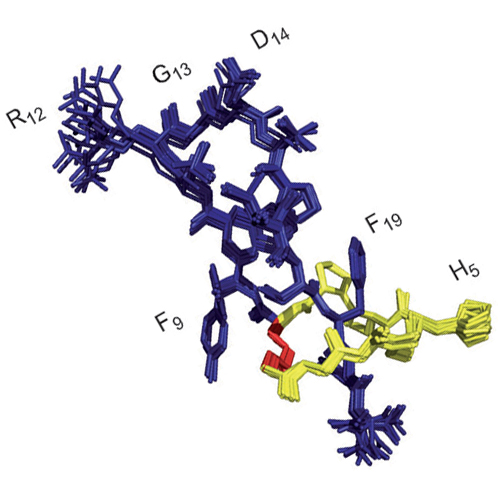Introducing Lasso Peptides as Molecular Scaffolds for Drug Design: Engineering of an Integrin Antagonist
05-Sep-2011
Angewandte Chemie, 2011, DOI: 10.1002/ange.201102190, Volume 123, Issue 37, pages 8873–8876 published on 05.09.2011
Peptides combine a high specificity for their target receptor with a low toxicity and are therefore a promising source for drug leads.However, their use has been limited because of undesirable physicochemical and pharmacokinetic properties. To overcome these obstacles protein scaffolds, such as ultrastable ribosomally assembled peptides, can be used together with synthetic chemical strategies to present biologically active peptide epitopes, as shown recently by the conversion of the cyclotide kalata B1 into a vascular endothelial growth-factor-A antagonist. In addition, bacterial lasso peptides have been under discussion as molecular scaffolds for drug design.These ribosomally assembled peptides consist of 16–21 amino acids and share an N-terminal eight/nine-residue macrolactam ring through which the Cterminal linear tail is threaded and trapped by steric hindrance of bulky side chains.











